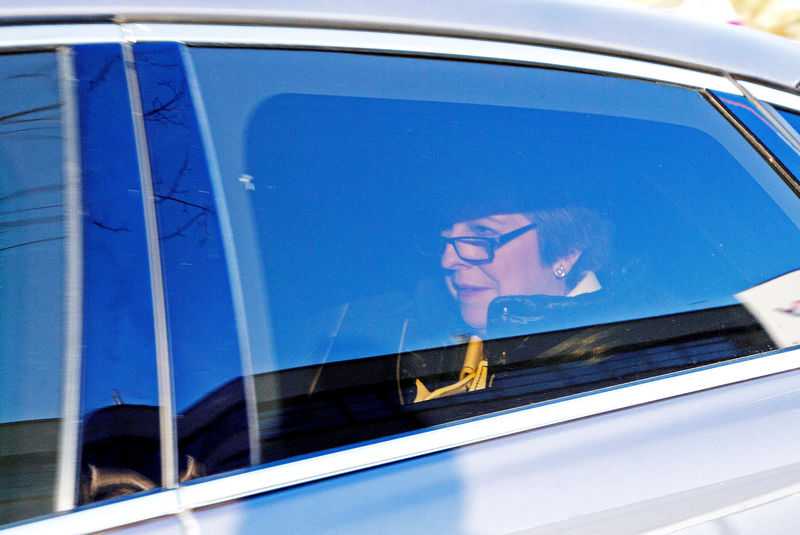Britain PM May: Getting rid of me risks delaying Brexit process
20 November, 2018

British Prime Minister Theresa May said on Sunday toppling her would risk delaying Brexit and she would not let talk of a leadership challenge distract her from a critical week of negotiations with Brussels.
In the days since she unveiled a draft EU divorce deal, May’s premiership has been thrust into crisis. Several ministers, including her Brexit minister, have resigned and some of her lawmakers are seeking to oust her.
More than two years after the United Kingdom voted to leave the EU, it is still unclear how, on what terms or even if it will leave as planned on March 29, 2019.
May has vowed to fight on, but with both pro-EU and pro-Brexit lawmakers unhappy with the draft agreement, it is not clear she will be able to win the backing of Parliament for it, raising the risk Britain leaves the EU without a deal.
“These next seven days are going to be critical, they are about the future of this country,” May told Sky News. “I am not going to be distracted from the important job.”
“A change of leadership at this point isn’t going to make the negotiations any easier ... what it will do is mean that there is a risk that actually we delay the negotiations and that is a risk that Brexit gets delayed or frustrated.”
To trigger a confidence vote, 48 of her Conservative lawmakers must submit a letter to the chairman of the party’s so-called 1922 committee, Graham Brady.
More than 20 lawmakers have said publicly that they have done so, but others are thought to have submitted letters confidentially. Brady told BBC Radio on Sunday the 48 threshold had not yet been reached.
Brady said he thought it was likely May would win any confidence vote, making her immune to another challenge for 12 months under the party’s rules.
Mark Francois, one lawmaker who has submitted a letter, said he expected some colleagues were taking soundings from local party members over the weekend before making a decision.
At the center of concerns over the deal is the Northern Irish backstop, an insurance policy to avoid a return to border checks between the British province and EU-member Ireland.
Critics say it would leave Britain bound to the EU in perpetuity and risks dividing the United Kingdom by aligning Northern Ireland more closely with the EU’s customs rules and production standards than mainland Britain.
The DUP, a small Northern Irish party which props up May’s minority government, has threatened to pull its support if the backstop means the province is treated differently from the rest of the United Kingdom.
DUP deputy leader Nigel Dodds said on Sunday it was “time to work for a better deal which does not undermine the integrity of the United Kingdom.”
May said negotiations were continuing and she intended to go to Brussels and meet European Commission President Jean-Claude Juncker. She said she would also be speaking to other EU leaders ahead of an EU summit to discuss the deal on Nov. 25.
“We won’t agree the leaving part, the withdrawal agreement, until we have got what we want in the future relationship because these two go together. The focus this week will be on the future relationship,” she told Sky. “It is the future relationship that delivers on the Brexit vote.”
TAG(s):
